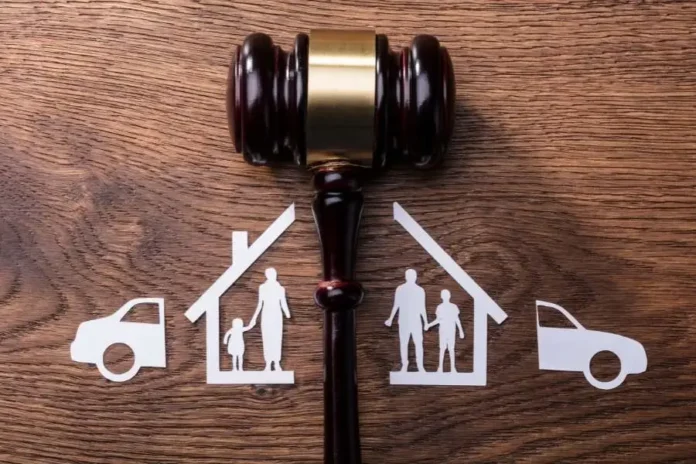Divorce can be a messy and emotionally draining experience, but it’s important to know how assets are divided in a Washington Family Law case. After all, you don’t want to end up with just the family pet and a lifetime supply of ramen noodles.
But fear not, we’ve got you covered. In this article, we’ll break down the laws and guidelines surrounding asset division in the state of Washington. So sit back, relax, and let’s dive into the nitty-gritty of dividing up your stuff (and maybe your ex’s too).

What are the Main Assets that Can Be Divided in a Divorce?
When a couple decides to get a divorce, one of the most challenging aspects is dividing their assets. Essentially, anything that has value can be considered an asset and subject to division.
The main assets that are typically divided in a divorce include real estate property, such as the marital home or rental properties, vehicles, bank accounts, retirement accounts, investment accounts, stocks, bonds, and other personal property like furniture, jewelry, and artwork. Additionally, any business interests or professional practices owned by either spouse may also be subject to division. Understanding what assets are involved and how they will be divided is crucial in ensuring a fair and equitable outcome for both parties.
Under Washington State’s laws, any property obtained during a marriage is typically classified as community property and subject to equal division during a divorce settlement. This encompasses a broad range of assets, including real estate, income earned by either spouse, and contributions made to pensions and 401(k) plans. It’s important for individuals going through a divorce to be aware of these laws and how they may impact the division of their assets.
By understanding the rules around community property, couples can work towards a fair and equitable outcome in their divorce proceedings.
Related Read: 5 Tips for Winning Your Divorce Case

If You Want to Keep it, Then Don’t Leave it
As the old saying goes, possession is nine-tenths of the law – and this definitely holds true in divorce cases. If you want to keep something, you need to keep it in your possession. It’s much harder to argue that you should have sole ownership of the house if you’ve moved out and your spouse has been living there for the past six months.
In fact, leaving something behind can even make it seem like you’re giving up your claim to it. It’s like that old jacket you left at a friend’s house five years ago and never bothered to pick up – it’s technically still yours, but do you really expect to get it back?
So if there are particular assets that you want to keep, don’t let them out of your sight. As the saying goes, “possession is nine-tenths of the law” – and in a divorce, that other tenth can be a real doozy. And hey, if all else fails, you can always try the old “finders keepers, losers weepers” defense – just don’t expect it to hold up in court!

Debts Aren’t Assets But are Also Divided in a Divorce
While assets are typically the focus of divorce proceedings, it’s important not to overlook the division of debts. After all, debts acquired during a marriage can have just as much of an impact on your financial future as assets do. And let’s face it, nobody wants to be stuck paying off their ex-spouse’s credit card bill for the rest of their life.
In Washington State, all debts incurred during the marriage are generally considered community property and subject to equal division. This includes everything from mortgages and car loans to credit card debt and personal loans. It’s important to keep in mind that the division of debts doesn’t necessarily have to be a 50-50 split, but should instead be based on what is deemed fair and equitable by the court.
So, what does this mean for you? Well, if your spouse racked up thousands of dollars in credit card debt during your marriage, you may end up being responsible for a portion of that debt after the divorce. On the bright side, at least you won’t have to put up with their impulse buying habits anymore! Just make sure to keep an eye on your own finances moving forward and avoid taking on any unnecessary debt – after all, you don’t want to end up back in court for a debt-related dispute.

If You Have Assets, Then You Should Have a Lawyer
Divorce can be a complicated and emotional process, especially when it comes to dividing up assets. Even if you’re on good terms with your ex-spouse, it’s important to remember that asset division is a legal process, and it’s easy for things to get messy without proper representation.
That’s why if you have significant assets at stake, it’s essential to have a lawyer who specializes in family law on your side. An experienced attorney can help you navigate the legal complexities of asset division, negotiate on your behalf, and advocate for your best interests in court.
While some people may be hesitant to hire a lawyer due to the associated costs, it’s important to consider the long-term implications of not having one. Without a lawyer, you may risk losing valuable assets or not receiving your fair share in the division of property. So investing in a lawyer can actually save you money and protect your financial future in the long run.
So if you have assets that you want to protect during a divorce, it’s worth considering hiring a lawyer who can help you achieve the best possible outcome. After all, divorce is tough enough – why make it harder on yourself by going it alone?









